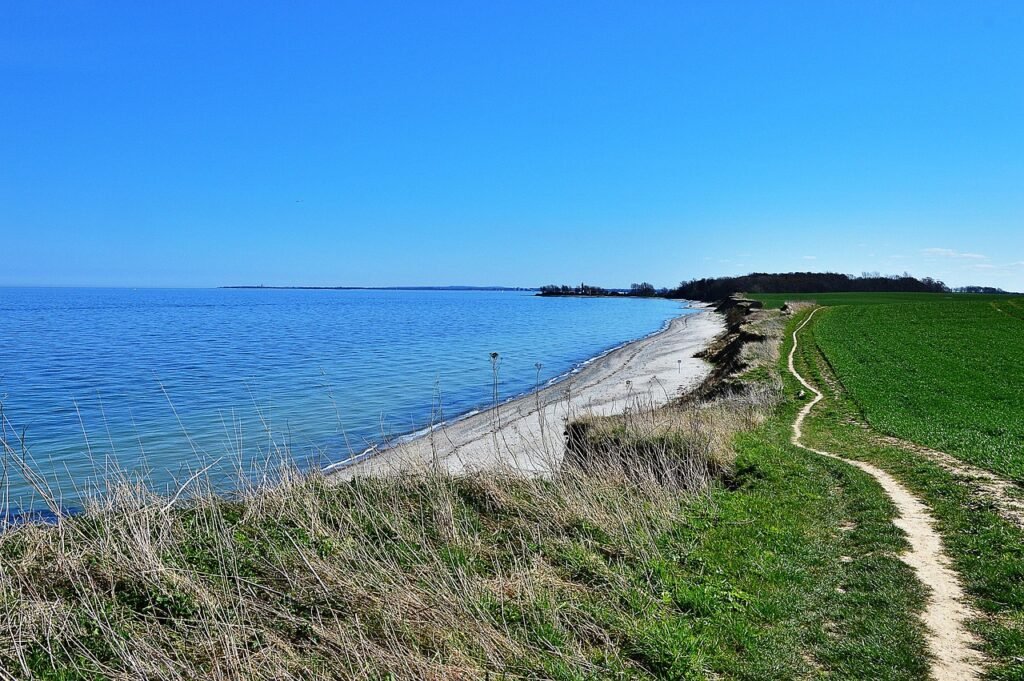The allure of a beach is undeniable. The rhythmic crash of waves, the warm sun kissing your skin, the soft sand between your toes – it’s a sensory symphony that draws millions to coastlines around the globe every year. More than just a picturesque escape, beaches offer a multitude of benefits for our physical and mental well-being. This comprehensive guide explores the diverse world of beaches, from their ecological importance to the recreational opportunities they provide, offering insights to help you make the most of your next seaside adventure.
The Ecological Significance of Beaches
Beaches are more than just scenic destinations; they are vital components of coastal ecosystems. They act as natural buffers, protecting inland areas from storm surges and erosion. Understanding their ecological importance is crucial for their preservation.
Beaches as Coastal Defenses
Beaches play a crucial role in protecting coastal communities.
- Natural Barriers: Sandy beaches absorb wave energy, reducing the impact of storms and high tides on inland areas.
- Erosion Control: Dunes and vegetation on beaches help stabilize the coastline and prevent erosion.
- Habitat Provision: Beaches provide nesting grounds for seabirds, turtles, and other wildlife, contributing to biodiversity.
Biodiversity Hotspots
Beaches support a diverse range of plant and animal life.
- Intertidal Zone: The area between high and low tide marks is home to unique organisms adapted to fluctuating conditions, such as crustaceans, mollusks, and seaweed.
- Dune Ecosystems: Coastal dunes are vegetated with hardy plants that stabilize the sand and provide habitat for insects, birds, and small mammals.
- Seabird Sanctuaries: Many beaches serve as nesting sites for seabirds, offering protection from predators and human disturbance. For example, the Outer Banks in North Carolina are a vital nesting area for various species of terns and gulls.
Threats to Beach Ecosystems
Despite their importance, beach ecosystems face numerous threats.
- Coastal Development: Construction of buildings and infrastructure can destroy habitats and disrupt natural processes.
- Pollution: Plastic waste, oil spills, and chemical runoff contaminate beaches and harm wildlife. Globally, millions of tons of plastic enter the ocean each year, with devastating consequences for marine ecosystems.
- Climate Change: Rising sea levels and increased storm intensity exacerbate erosion and inundation of coastal areas.
Beach Activities and Recreation
Beaches offer a wide array of recreational opportunities for people of all ages and interests. From swimming and sunbathing to watersports and beach games, there’s something for everyone to enjoy.
Relaxation and Sunbathing
Beaches provide the perfect setting for relaxation and rejuvenation.
- Stress Reduction: The sound of waves and the warmth of the sun have a calming effect on the mind and body.
- Vitamin D Intake: Sunlight exposure helps the body produce vitamin D, which is essential for bone health and immune function. Note: Always wear sunscreen to protect your skin from harmful UV rays.
- Mindfulness: Spending time on the beach encourages mindfulness and appreciation of nature.
Watersports and Adventures
For thrill-seekers, beaches offer a variety of exciting watersports.
- Surfing: Catching waves is a popular beach activity for experienced surfers and beginners alike. World-renowned surf spots include Waikiki Beach in Hawaii and Bells Beach in Australia.
- Kayaking and Paddleboarding: Exploring the coastline by kayak or paddleboard offers a unique perspective and a great workout.
- Snorkeling and Diving: Discover the underwater world by snorkeling or diving in clear waters, observing colorful fish and coral reefs. For example, the Great Barrier Reef in Australia is a premier diving destination.
- Jet Skiing and Parasailing: For adrenaline junkies, jet skiing and parasailing provide exhilarating experiences.
Beach Games and Social Activities
Beaches are ideal for social gatherings and fun activities.
- Volleyball and Frisbee: Organize a friendly game of beach volleyball or frisbee with friends and family.
- Sandcastle Building: Unleash your creativity and build elaborate sandcastles with buckets and shovels.
- Beach Picnics: Enjoy a delicious picnic lunch with stunning ocean views. Remember to clean up after yourself and dispose of waste properly.
Choosing the Perfect Beach Destination
With thousands of beaches around the world, choosing the perfect destination can be overwhelming. Consider your preferences and priorities when planning your trip.
Types of Beaches
Different beaches offer unique experiences.
- Sandy Beaches: Classic beaches with soft, golden sand, ideal for sunbathing and swimming.
- Rocky Beaches: Beaches with rocky outcrops and tide pools, offering opportunities for exploration and wildlife viewing.
- Shell Beaches: Beaches composed primarily of seashells, creating a unique and visually stunning landscape. Shell Beach in Shark Bay, Australia, is a prime example.
- Black Sand Beaches: Beaches with volcanic black sand, often found in regions with volcanic activity. Punalu’u Beach in Hawaii is a well-known black sand beach.
Factors to Consider
When selecting a beach destination, consider the following factors.
- Location and Accessibility: Choose a beach that is easily accessible and convenient to reach.
- Water Quality and Safety: Check water quality reports and lifeguard availability to ensure a safe swimming experience.
- Amenities and Facilities: Consider the availability of restrooms, showers, restaurants, and other amenities.
- Crowd Levels: If you prefer a quiet and secluded experience, avoid popular tourist destinations.
Popular Beach Destinations
Some of the world’s most popular beach destinations include:
- The Maldives: Famous for its pristine white sand beaches, turquoise waters, and luxury resorts.
- Bora Bora, French Polynesia: Renowned for its stunning lagoon, overwater bungalows, and lush tropical landscapes.
- Miami Beach, Florida, USA: A vibrant and iconic beach destination known for its Art Deco architecture, lively nightlife, and beautiful coastline.
- Bali, Indonesia: Offers a diverse range of beaches, from surfing hotspots to tranquil coves, along with rich culture and natural beauty.
Beach Safety and Responsible Tourism
Protecting yourself and the environment is crucial when visiting beaches. Follow these guidelines for a safe and responsible beach experience.
Sun Safety
Protecting your skin from the sun is essential.
- Sunscreen: Apply a broad-spectrum sunscreen with an SPF of 30 or higher, and reapply every two hours or after swimming.
- Protective Clothing: Wear a hat, sunglasses, and long-sleeved clothing to shield your skin from the sun.
- Seek Shade: Seek shade during the hottest part of the day, typically between 10 a.m. and 4 p.m.
Water Safety
Be aware of potential hazards in the water.
- Swim in Designated Areas: Swim in areas that are patrolled by lifeguards and marked as safe for swimming.
- Be Aware of Rip Currents: Learn how to identify and escape rip currents, which can pull swimmers away from shore. If caught in a rip current, swim parallel to the shore until you are out of the current.
- Never Swim Alone: Always swim with a buddy and let someone know your plans.
Environmental Responsibility
Help protect beach ecosystems by following these guidelines.
- Reduce Waste: Bring your own reusable water bottles, bags, and containers to minimize waste.
- Dispose of Trash Properly: Dispose of trash in designated bins and participate in beach cleanups.
- Respect Wildlife: Observe wildlife from a distance and avoid disturbing their habitats.
- Leave No Trace: Leave the beach as you found it, leaving only footprints and taking only memories.
Conclusion
Beaches offer a unique blend of natural beauty, ecological importance, and recreational opportunities. By understanding their significance and practicing responsible tourism, we can ensure that these precious coastal environments are preserved for future generations. Whether you’re seeking relaxation, adventure, or a connection with nature, a beach offers something for everyone. So, pack your bags, grab your sunscreen, and embark on a memorable beach experience! Remember to always prioritize safety and environmental responsibility to make the most of your seaside adventure.

